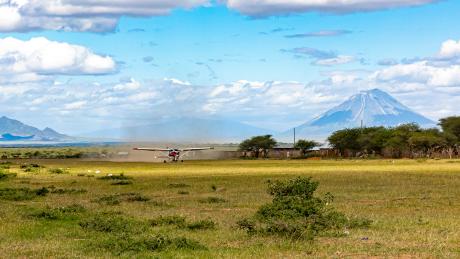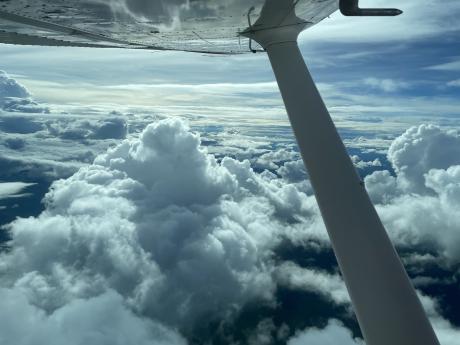
An MAF pilot carried out a fly-by maintenance check at a remote Tanzanian airstrip after the rains.
The wet season is a time of growth in Tanzania as the dry land gets watered and crops thrive. But that growth can also be a risk around bush airstrips when the greenery gets close to the runway.
MAF pilot Mark Liprini used a journey from Dodoma to Mahaka to check out one of those airstrips at Chidudu, following up on concerns that recent growth needed to be cut back.

During the regular Kilimatinde health and evangelism safari in May, after the wet season, Mark flew the Cessna 206 by Chidudu to assess the airstrip, ahead of a landing the following day.
The community of Chidudu struggles to maintain their airstrip in order to keep it operational. In April, they had been warned that if they are unable to keep the grass cut and hedges trimmed, MAF wouldn’t be able to land there as it would be unsafe.
These are challenges we constantly face as pilots. We are constantly motivating the people - we need to trim that there, we need to cut back there, we need to fill in these holes left by the rain.
Thankfully, during the fly-by, Mark reported that the airstrip had indeed been cut by the local community.
During the middle of the year, the country is in its dry season when plants aren’t growing as fast and airstrips are easier to maintain.
However, during the wet season, everything grows so fast – this is during a time when community members are also trying to maintain their own land and ‘shambas’ (allotments).
Mark recalled that in some places this dilemma can bring questions.
MAF’s Tanzania Programme Manager, Stewart Ayling explained, “for some of these poorer communities in the rainy season, it can be difficult to justify spending time maintaining an airstrip that brings preventative care, instead they could be spending the time cultivating vital income generating crops that will support the family in the rest of the year.”
This makes a pilot’s job much harder, but these conversations are vital to ensure that airstrips are safe and we can continue to reach some of the most isolated people in Tanzania.